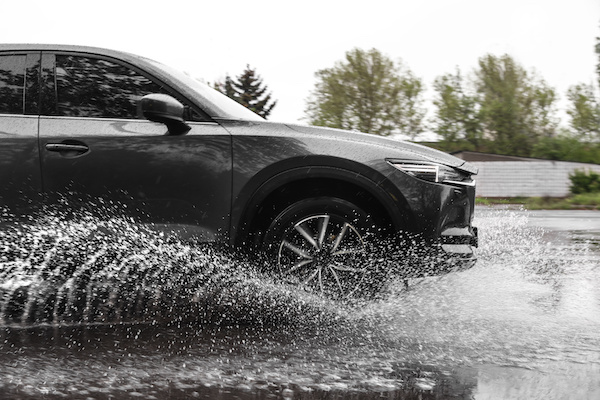
Have you ever experienced that terrifying moment when your car seems to lose contact with the road during a rainstorm? That's hydroplaning, a dangerous situation where your vehicle slides uncontrollably on a wet surface. But what exactly causes hydroplaning, and more importantly, how can you avoid it? Let's look into the mechanics of hydroplaning and equip you with practical tips to stay safe on wet roads.
The Science Behind the Slide
Hydroplaning occurs when a layer of water builds up between your vehicle's tires and the road surface, leading to a loss of traction. Essentially, your tires are floating on water rather than gripping the road. This phenomenon typically happens during heavy rain or on surfaces where water pools. Several factors contribute to hydroplaning, including speed, tire tread depth, and water depth.
When driving at high speeds, your tires don't have enough time to displace the water in front of them, resulting in a buildup that lifts the tires off the road. Tire tread depth also plays a critical role; worn-out tires are less effective at channeling water away. Lastly, even a thin layer of water on the road can lead to hydroplaning if your speed and tire conditions aren't optimal.
Key Factors Contributing to Hydroplaning
While rain is the primary culprit, several other elements can increase the likelihood of hydroplaning. These include your tires' type and condition, driving habits, and road conditions.
- Tire Condition: Worn-out tires are particularly susceptible to hydroplaning because they can't effectively channel water away. To maintain optimal traction, regularly check your tire tread depth and replace it when necessary.
- Speed: Driving too fast on wet roads significantly increases the risk of hydroplaning. The faster you drive, the harder it is for your tires to maintain contact with the road.
- Water Depth: Even a small amount of water can cause hydroplaning. Puddles, pooling water on uneven surfaces, and even light rain can create hazardous conditions.
- Road Surface: Smooth, newly paved roads can be more prone to hydroplaning than rough, textured surfaces. Always be cautious when driving on freshly paved roads during or after rain.
Preventing Hydroplaning
Hydroplaning can be a frightening experience, but there are several steps you can take to reduce the risk. Here are some practical tips to keep you safe:
- Slow Down: Reducing your speed is the most effective way to prevent hydroplaning. Slow down when it rains and maintain a steady, moderate speed.
- Proper Tire Maintenance: Ensure your tires are in good condition with adequate tread depth. Rotate your tires regularly and replace them when the tread is worn.
- Avoid Puddles: Avoid standing water whenever possible. If you can't avoid a puddle, slow down before you reach it.
- Smooth Movements: Avoid sudden turns, stops, or accelerations. Smooth, gentle movements help maintain traction.
- Stay Calm: If you start to hydroplane, don't panic. Ease off the accelerator and steer straight until you regain control. Avoid sudden braking or sharp turns.
What to Do If You Hydroplane
Even with all precautions, you might still find yourself hydroplaning. Knowing how to react can make all the difference. The key is to stay calm and follow these steps:
- Ease Off the Gas: Gradually lift your foot off the accelerator. Sudden speed changes can make the situation worse.
- Steer Straight: Keep the steering wheel steady and straight. Sudden movements can cause your car to skid.
- Avoid Braking: Resist the urge to slam on the brakes. If you need to slow down, do so gently and smoothly.
- Wait It Out: Steer straight and wait for your tires to regain traction. This usually happens quickly, but staying calm is crucial.
The Importance of Vehicle Maintenance
Regular vehicle maintenance plays a vital role in preventing hydroplaning. Ensuring your tires are in good condition, your brakes are functioning properly, and your suspension is well-maintained can all help reduce the risk. Make it a habit to check your tire pressure and tread depth regularly, and don't neglect routine inspections and servicing.
Don't let hydroplaning catch you off guard. Visit Premier Automotive Service today for a comprehensive tire check and maintenance to ensure your vehicle is road-ready in any weather.